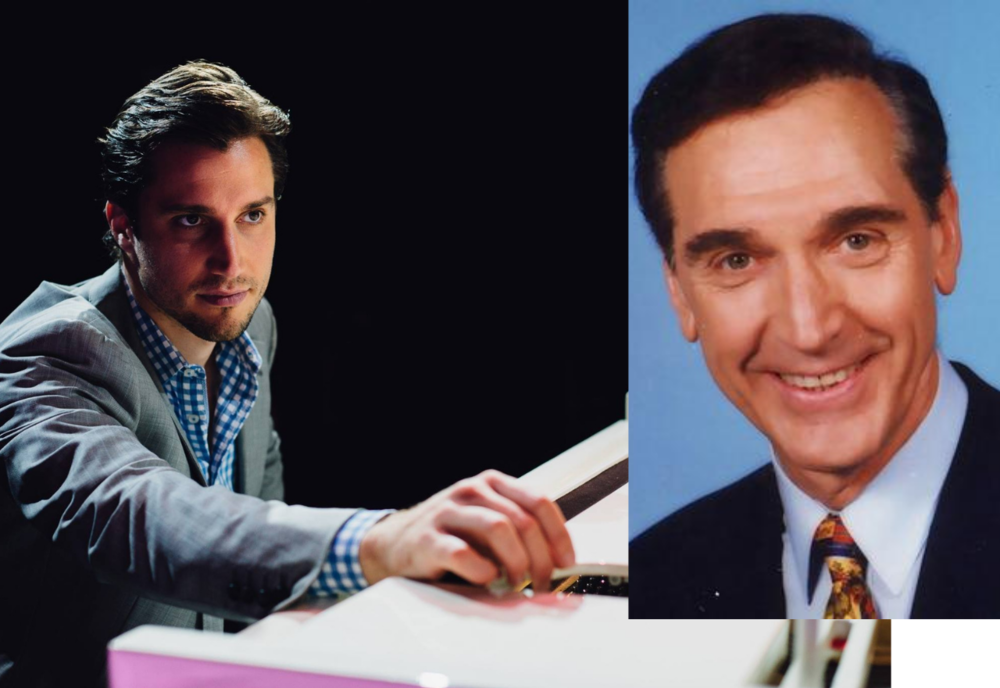Dementia prevention starts earlier than we thought
Laura Williams
22 September 2021, 9:15 PM
 Emerging young leaders are leading the charge in supporting dementia research.
Emerging young leaders are leading the charge in supporting dementia research. “By the time those currently aged 18-40 are in their fifties, sixties, and seventies, it is expected that the number of people with dementia will more than triple”.
This is according to Ambassador for the Centre for Healthy Brain Ageing (CHeBA) PJ Lane, who became passionate researcher of Alzheimer’s Disease after it took the life of his father, entertainer Don Lane, in 2009.
The frightening statistic is a timely reminder, as Dementia Action Week kicked off this Monday September 20, and work is underway to engage the next generation in protecting their own brain health.

*Actor PJ Lane is campaigning for dementia education following the loss of his father, well known TV personality Don Lane to the disease. PHOTO: Facebook/Wikipedia
While no cures exist for dementia yet, according to Dementia Australia’s Executive Director of Operations Leanne Emerson, there are preventative measures that can be taken to reduce the likeliness of dementia.
“It’s about living a healthy lifestyle, taking care of what you eat and making sure you exercise. Social engagement is also really important. Not being socially active is one of the biggest risk factors for dementia,” said Ms Emerson.
PJ Lane, who has been predisposed to dementia through his father’s experience, says that the Change Makers initiative will support research that inevitably impact their own future.
Asking people ages 18-40 to get involved, the Change Makers initiative is spearheading dementia research and promoting the importance of healthy lifestyle factors.
CHeBA hopes the program will further their research into dementia by harnessing the sense of social responsibility that characterises the next generation and encourage them to support their own future health.
According to research, the disease process generally begins 20-30 years before symptoms become apparent, decades earlier than we once might have imagined. This means that it is important that young people begin to be more conscious of the risks and we all re-evaluate our attitudes.
Despite the staggering number of Australians affected by dementia – three in 10 Australians over 85 have dementia, and an estimated 380,000 to 470,000 Australians are affected by the disease – those diagnosed reportedly face everyday discrimination.
“That is mostly unintentional and borne out of a lack of information and awareness about dementia. The things people say make it difficult for people with dementia to participate in society, so we’re trying to educate the population,” said Ms Emerson.
The discrimination doesn’t present through malice, but a change in treatment. For some that looks like health professionals speaking to the carer about the disease and leaving the person diagnosed with dementia out of the conversation. In other cases, it presents as family and friends distancing themselves and excluding them from plans.
It is this discrimination that prompted the theme for Dementia Action Week this year, ‘A little support makes a big difference’, in attempt to educate the public.
With numbers of people with dementia projected to spike, investment into dementia research is a pressing issue to gain a better insight into prevention, care, and treatment.
Spokesperson for The Dementia Momentum Dr Richard Grellman says that advancing knowledge across all generations will be critical to prevention.
“My hope is that my grandchildren grow older unburdened by the anticipated increase in dementia in society,” Dr Grellman said.